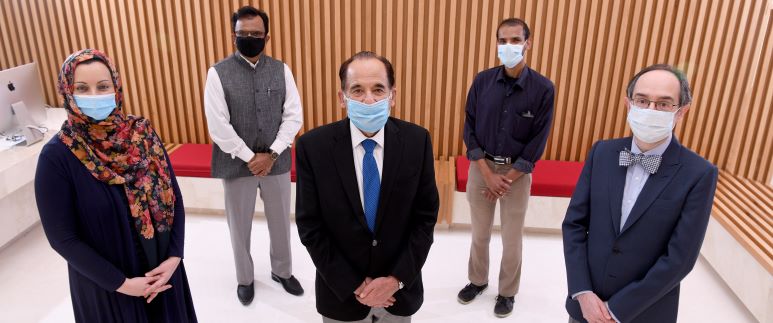COVID 19: The global public health reality
 The researchers suggest that the long-term social and economic effects of COVID-19 may be more impactful than the disease itself.
The researchers suggest that the long-term social and economic effects of COVID-19 may be more impactful than the disease itself.
Researchers at Weill Cornell Medicine – Qatar have explored questions about the epidemiology of the novel coronavirus and placed it in context with past pandemics and some of the ongoing global public health crises that are in dire need of attention.
In sharing the death rates from various pandemics, the researchers acknowledge that COVID-19 poses a significant risk of death to the elderly, the immuno-suppressed and those with chronic conditions. They express that while COVID-19 has thus far caused 0.115 deaths per thousand (as of Sep 8) worldwide, the Spanish flu of 1918 is estimated to have caused between 9.44 and 55.56 deaths per thousand people, and even the Hong Kong flu of 1968-69 was responsible for 1.13 deaths per thousand. The death rate in Qatar is among the lowest in the world. The research postulates that many people, especially in low- and middle-income nations, may actually face a far greater risk from several communicable and non-communicable diseases than they do from the novel coronavirus.
Using data from the Institute for Health Metrics and Evaluation, the researchers show that non-communicable – but preventable – diseases like heart disease and diabetes account for 41 million deaths globally each year, while communicable diseases like AIDS, tuberculosis and measles account for 10 million deaths. For instance, in 2017 alone, there were 219 million cases of malaria, causing approximately 435,000 deaths.
The paper was written by Drs. Sohaila Cheema, Marco Ameduri, Amit Abraham, Sathyanarayanan Doraiswamy and Ravinder Mamtani. Dr. Cheema, assistant dean of the Institute for Population Health at WCM-Q, said: “We are not at all suggesting that COVID-19 should not be taken extremely seriously, rather we are pointing out that there are other concurrent problems causing distressingly high fatality rates as we continue to battle the COVID-19 pandemic.”
Dr. Ameduri, senior associate dean for premedical education and Education City collaborative curricular affairs at WCM-Q added: “The social and economic impact resulting from the COVID-19 may be far greater and longer lasting than the actual disease burden. Hence, it is critical to be mindful of the short and long-term effects of the pandemic on the well-being of the people around the world”.
The paper, which is entitled ‘The COVID-19 pandemic: The public health reality’ has been published in the Cambridge University Press journal Epidemiology and Infection. It highlights the disruption in healthcare services in some nations and points its attention to the potential anxiety, mental illness and depression caused by social isolation and loss of income. For people in low to middle-income nations, the report suggests that these may pose a greater risk to long-term well-being than COVID-19. The research also examines the role of media sensationalism and the spread of misinformation.
Dr. Mamtani, vice dean for student affairs-admissions, population health and lifestyle medicine at WCM-Q, said: “Our report seeks to neither downplay or overstate the risk to personal health from the pandemic and those at high risk should obviously take great care to avoid catching the virus. With pandemics likely to recur, we call for global health decisions to be coordinated internationally on the basis of science and public health evidence. Imparting public health education in schools and community settings to inform children and adults about health and disease risks is vital.”
The full paper can be read at https://pubmed.ncbi.nlm.nih.gov/32958089/.